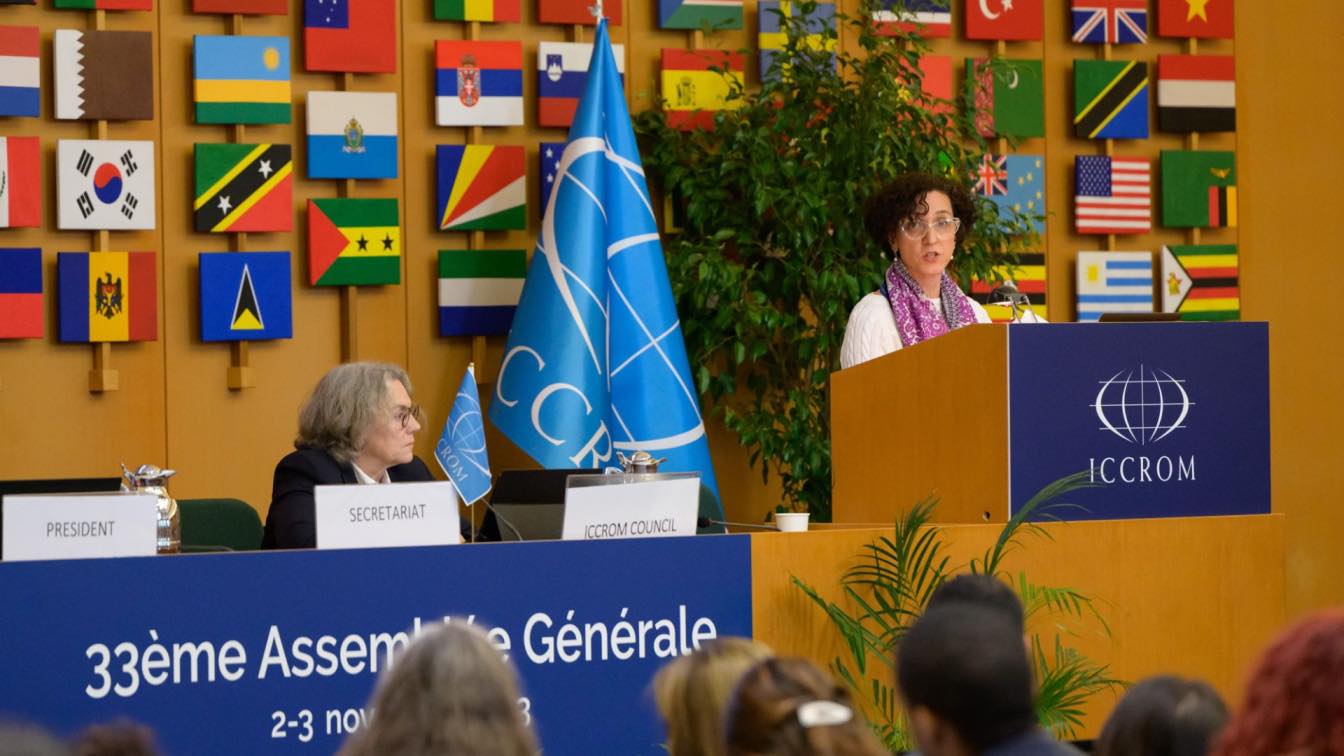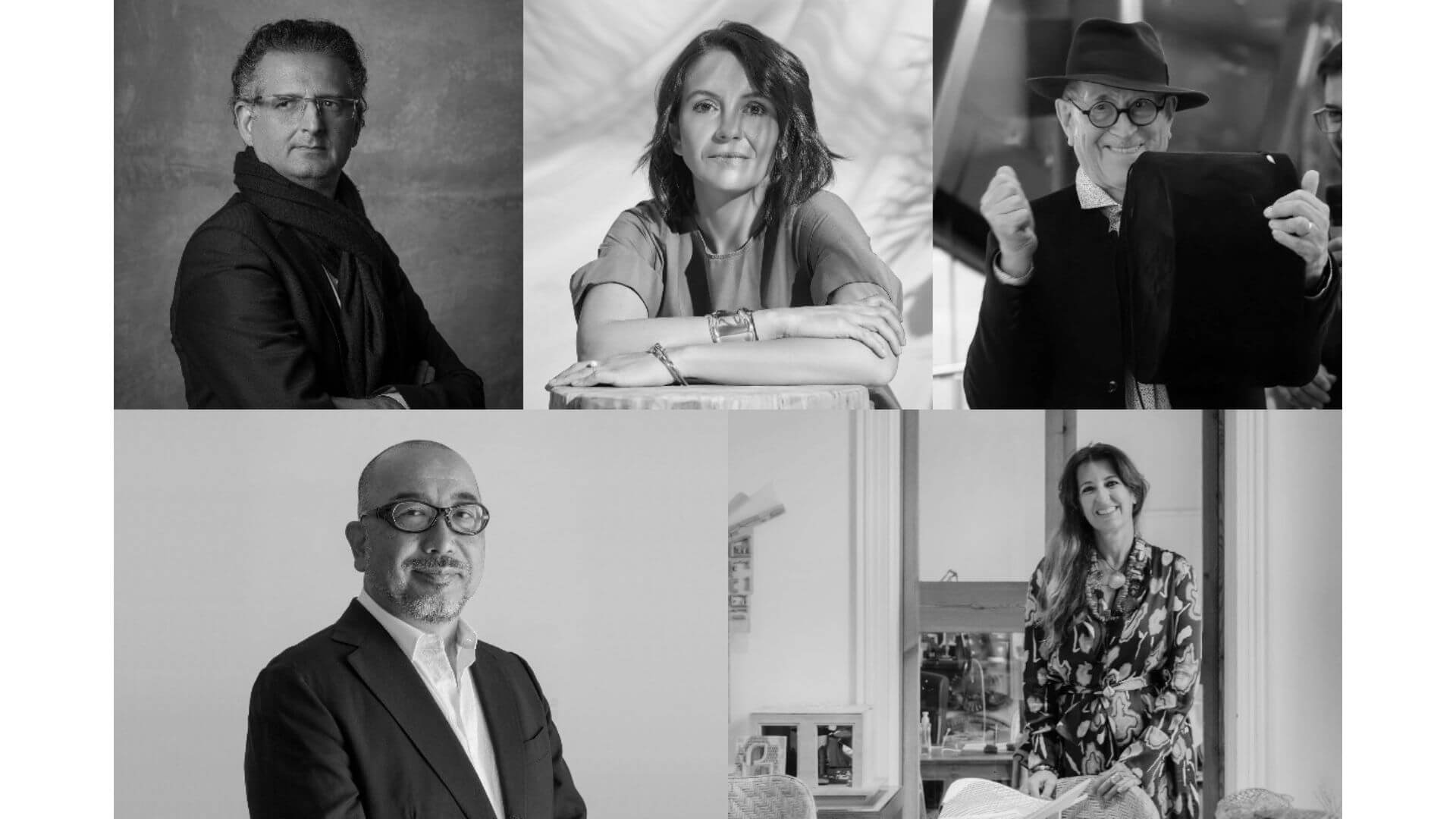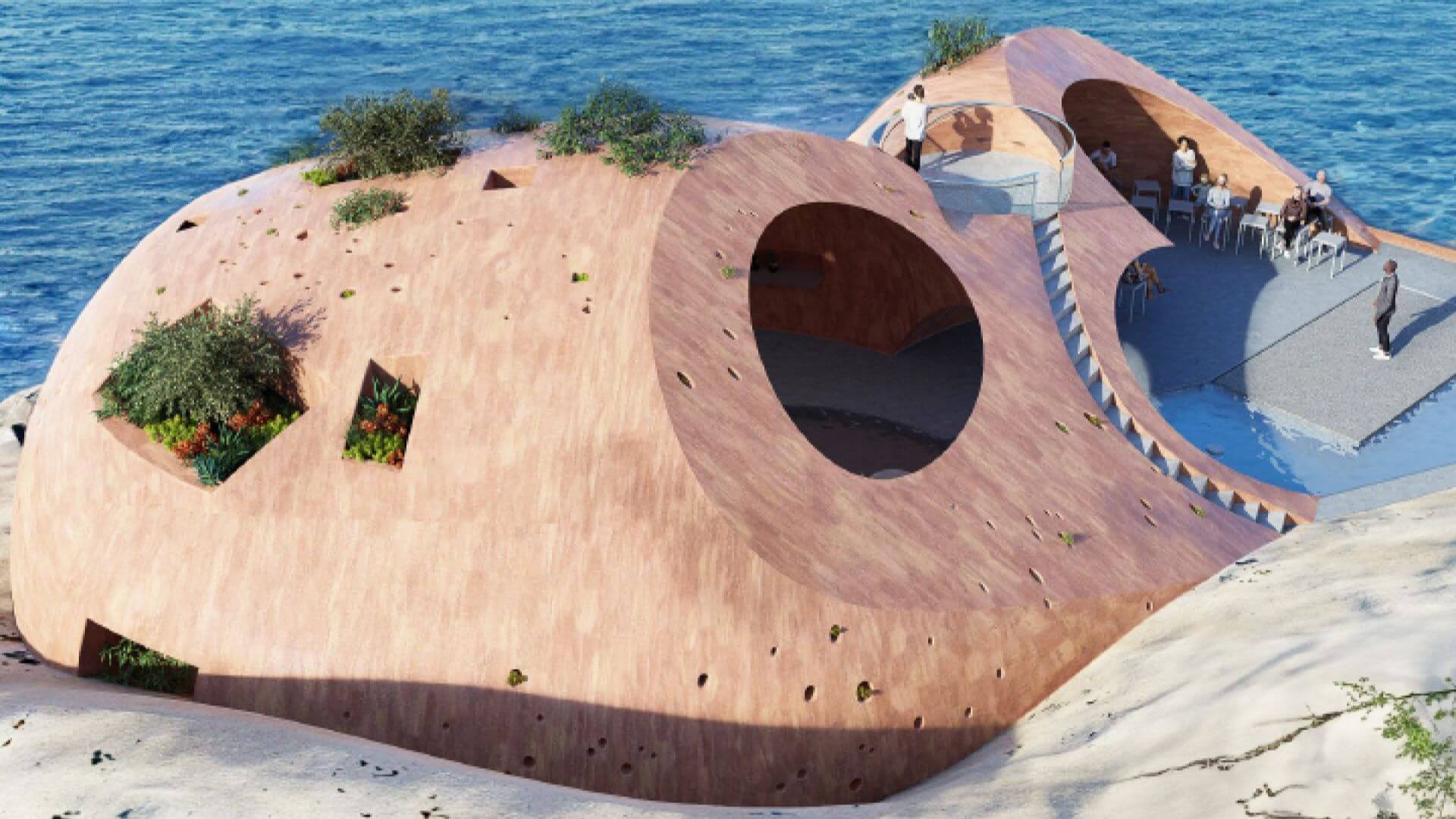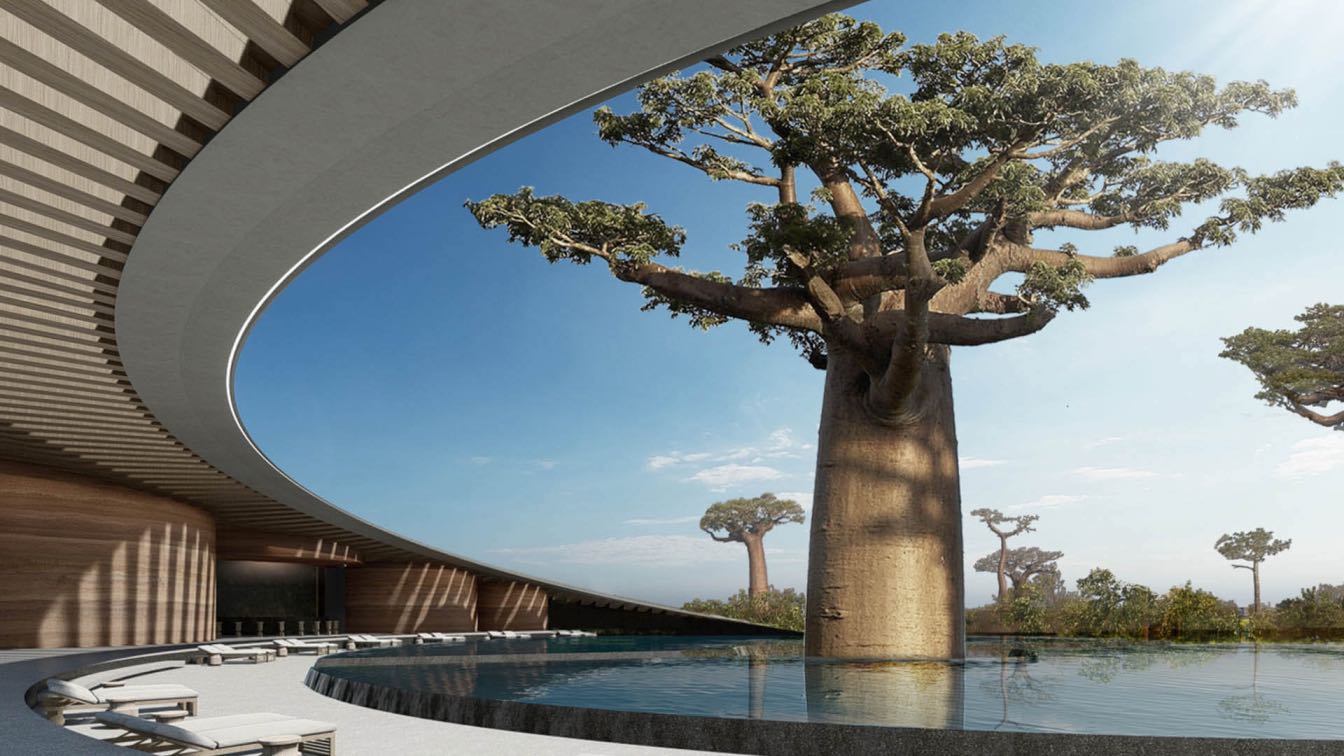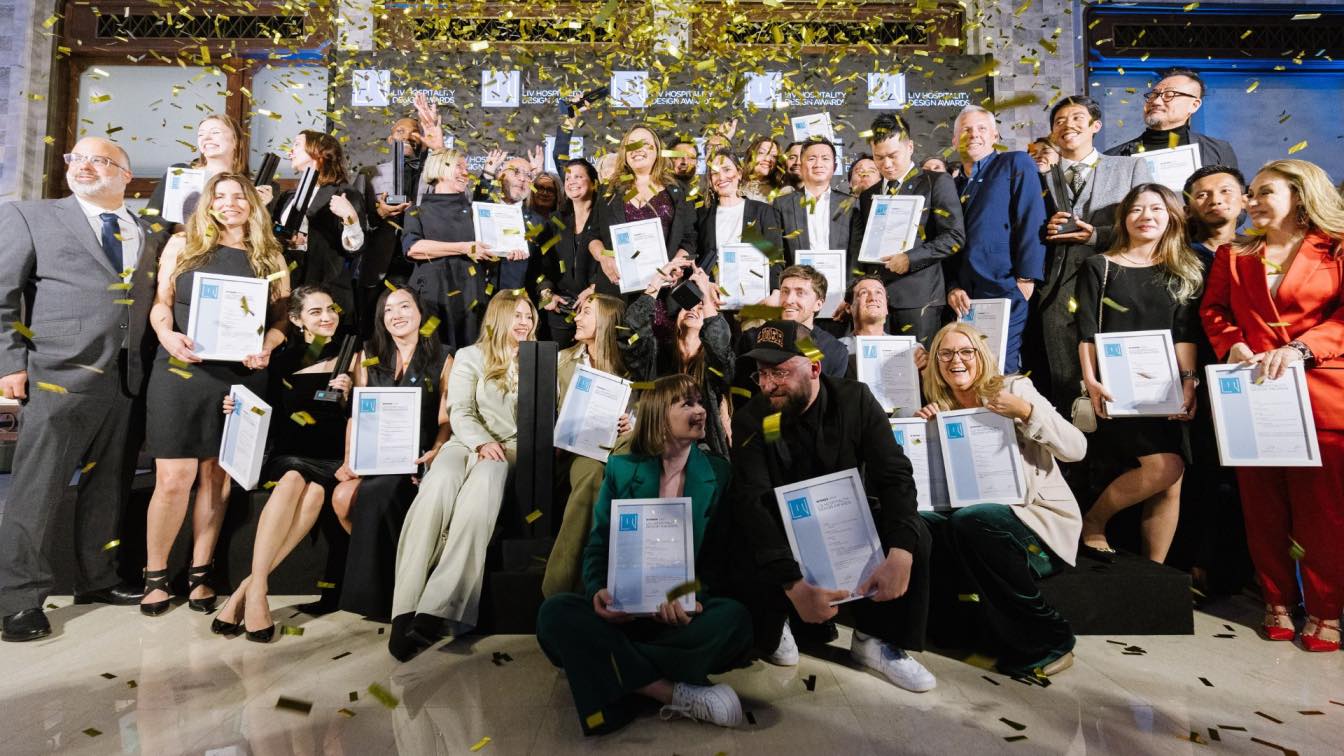ICCROM moves to new era with a new Council and new Director General. Collaboration with Italy and the UAE, last two years of achievements. Migration and Heritage in a Thematic Discussion.
The 33rd session of the ICCROM General Assembly, the International Centre for the Study of the Preservation and Restoration of Cultural Property, has concluded in Rome. National delegations from ICCROM’s 137 Member States - as well as observers from non-Member States, intergovernmental organizations and other partnering institutions - attended the two-day event hosted at the headquarters of the Food and Agriculture Organization of the United Nations (FAO) to assess the progress made by the organization, set priorities and address emerging issues in the field.
A new Council and Chairperson were elected during the General Assembly. The new Chairperson of the ICCROM Council and Bureau is Benoît Dubosson, while Kenza Dufourmantelle and Julia Antonia Vicioso Varelas were elected as Deputy Chairpersons. Newly elected and re-elected members of the Council include Norah AlKhamis, Fadi Balaawi, Nanette De Jong, Kenza Dufourmantelle, Anthi Kaldeli, Ana Laborde Marqueze, Aline Magnien, Kazuhiko Nishi, Isabel Raposo De Magalhães, Moctar Sanfo, Lasha Shartava, Ji-young Shin, Alexandra Warr and Ola Wetterberg.
Many urgent topics and issues were discussed at the 33rd session of the ICCROM General Assembly. “This occasion signifies a pivotal step in our ongoing commitment to safeguarding and preserving cultural heritage,” said Dr. Webber Ndoro, Director-General of ICCROM. “We are eager to foster collaborations and strengthen our mission in the preservation of cultural heritage,” he added. “On this occasion, we express gratitude to the Council Members for participating in this meeting in a spirit of change, and for leveraging their expertise to multiply ICCROM's impact around the world.”
As Dr. Webber Ndoro’s 6-year mandate concludes this year, a new Director General was nominated by the Council and approved by the Member States. Ms. Aruna Francesca Maria Gujral was appointed to lead the organization starting in January 2024.
On the occasion of her appointment, Ms. Gujral stated her commitment to ICCROM and said, “I’m really grateful and excited for the trust and confidence the General Assembly has given me today, electing me as the new Director-General of ICCROM for the next four years.”
Migration and Heritage in a thematic discussion
A thematic discussion on the concept of "Heritage and Migration” was held on the sidelines of the 33rd session of the General Assembly. The connection between heritage and migration lies in the fact that migration has played a significant role in shaping the cultural heritage of many communities and groups. In this regard, Gegê Leme Joseph, an architect and urbanist (FAUUSP–Brazil) and Senior Programme Manager for Africa, Latin America and the Caribbean, and Coordinator of the Migration Museums Network at the International Coalition of Sites of Conscience, explained how migration changes concepts of heritage and suggested pathways to greater inclusivity. She discussed how more inclusive approaches to heritage contribute to the well-being of diverse communities, how these approaches change ways of caring for and communicating the value of heritage, and finally, what responses are needed from the conservation sector.
“Throughout history, people have been on the move. However, forces – such as the climate crisis, conflict and development – are driving change at an unprecedented scale and pace,” Ms. Leme Joseph explained. “As transnational migration ramps up, will the future be one of ever-increasing tensions, or will it give rise to a new cultural milieu in which progressively diverse communities live and thrive together?”
She believes that migration may bring with it experiences of loss through loosening ties with cultures of birth, but also of cultural enrichment for both diaspora and their new host countries: “These exchanges give rise to different notions of identity and histories of belonging that extend beyond national boundaries and which are increasingly explored within heritage storytelling.”
When people move, they carry cultural values and practices founded on different worldviews - notably regarding our relationship with the natural world. “These changing influences are evident, for example, in the evolution of approaches to conserving cultural and natural heritage, which today are centred on consideration of culture and nature as one, marking a paradigm shift towards the protection of cultural landscapes and their bio-cultural diversity,” Ms. Leme Joseph concluded.
Collaboration with Italy and the UAE, past two years of achievements
Conservation of cultural heritage is a critical endeavor that requires global cooperation. In this pursuit, ICCROM and its partners and Member States have joined forces in a powerful collaboration to drive sustainable conservation efforts. The long-standing collaboration between ICCROM and Italy, as well as the United Arab Emirates (UAE), is an excellent example to present, and the fruitful achievements of the last two years were one of the main topics to review at the General Assembly.
Besides being the host country of the organization, Italy, with its rich cultural heritage and expertise in conservation, is an ideal partner for ICCROM. The collaboration between ICCROM and Italy brings together the strengths of both entities to drive sustainable conservation on a global scale. Italy's centuries-old tradition of preservation and restoration, combined with ICCROM's international reach and technical expertise, creates a formidable force in the field of cultural heritage conservation.
ICCROM and Italy work together on several projects, the most eminent of which is the Youth.Heritage.Africa. flagship programme. This project, supported by the Directorate General for Development Cooperation of the Italian Ministry of Foreign Affairs, aims to connect and empower young heritage leaders through innovative strategies and initiatives to make their heritage a source of economic and social opportunity. Many activities and events were carried out during the last two years within the scope of this significant project.
The relations between ICCROM and the UAE are formulated in accordance with three agreements since the initiation of cooperation in 2008. Mr. Nasir Abdul Karim Al Darmaki, Deputy Director of the ICCROM-Sharjah Regional Office, reviewed before representatives of ICCROM Member States the fruitful between the UAE and ICCROM during the last biennium, such as the Arab Forum for Cultural Heritage, the ICCROM-Sharjah Award for Good Practices in Cultural cooperation Heritage Conservation and Management in the Arab Region, the Arab Cultural Heritage Award for the Young, the documentation of the Mahatta Museum of Aviation, and many others.
“Thanks to the patronage and support of His Highness Sheikh Dr. Sultan bin Mohammed Al Qasimi, Member of the Supreme Council of the United Arab Emirates and Ruler of the Emirate of Sharjah, this fruitful cooperation between ICCROM and the UAE will continue and grow over the next two years, with a strong desire to achieve more success and further collaborations with local, regional and international partners to preserving and promoting cultural heritage in the Arab region,” Mr. Al Darmaki said.
About ICCROM
ICCROM is an intergovernmental organization working in service to its Member States to promote the conservation of all forms of cultural heritage, in every region of the world ICCROM was created in the aftermath of the Second World War in response to widespread destruction and the urgent need to reconstruct cultural property. Thanks to the adhesion of the first five countries (Austria, Dominican Republic, Spain, Morocco and Poland), ICCROM was officially born in Rome on the 1st of March 1959, as a result of the 9th Session of the UNESCO General Conference held in New Delhi, India, in 1956.

